Faster internet service has been switched back on 37 hours into its suspension.
The 3G and 4G service have been resumed at 10:00am, a spokesperson with the Bangladesh Telecommunication Regulatory Commission (BTRC) told The Daily Star this morning.
Most of the private telecommunications operators also confirmed about it.
The services were switched off at 9:00pm on December 30 (election day) three hours after restoring the mobile internet.
During the period, people were not able to use the internet on their phones, stream or upload pictures or videos.
This the third time the telecom regulator shut down the 3G and 4G services in last two days.
According to the BTRC, there were 8.78 crore active internet connections in the country as of June this year and mobile phone connections accounted for 93.43 per cent.
As of November of 2018, over 6 crore people are currently using the 3G and 4G mobile internet.
According to BTRC data, there were 57.35 lakh broadband connections in November.
On December 26, the BTRC in a meeting with the International Internet Gateway representatives said social media sites, especially Facebook, would be blocked if needed.
BTRC in the night of the following day slowed down mobile internet by shutting down 3G and 4G services. However, the service was restored on Friday morning 10 hours into its suspension.
3G, 4G back on
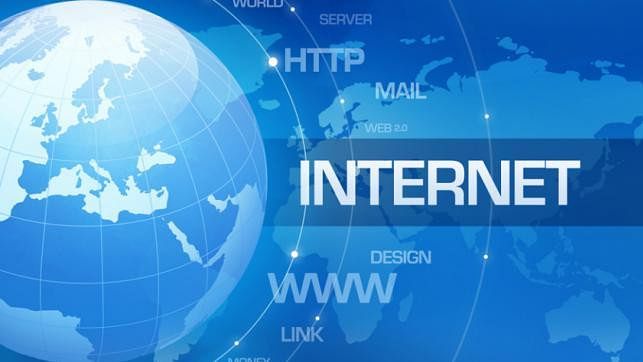
Related News
Public property means the "public's" property – it doesn't belong to any individual or political party. But recent examples tell a different story. The ruling Awami League is going to create an extraordinary example in a soon-to-be-held rally in Rajshahi, where a special train has been earmarked for this occasion. The question is: can a political party use a national asset in this way?
It must be clarified that even though we criticise politicians and the parties they represent, at the end of the day, we have to – or want to – go to them for solutions. It's a proven fact that when politicians lead a country through a political process, the country benefits the most. There are ample examples of how non-political forces steer a nation, with Pakistan being a prominent example; a country that is on the verge of bankruptcy. Comparatively, India has no fewer internal problems. But as they are ruled by a politician-led democratic process, they have still managed to create a strong footing.
Our everlasting hope is that political parties will govern Bangladesh through a proper, acceptable and independent election. Unfortunately, as time goes by, a gross lack of equality, justice and good governance is gaining institutional acceptance.
The Daily Star Bangla reported that the Awami League will hold a rally in Rajshahi Madrasa Public Speaking Ground on January 29. This is a rally organised by the political party AL, and not by the AL government. Still, a special train has been arranged for this "political party's" rally.
Now, why is this a problem? What harm is there in arranging a special train for those attending a specific party's rally?
Well, firstly, why should there be a special arrangement for this, when there aren't even enough trains to service the general populace, and when the passenger to train ratio is quite low?
Secondly, can we recall what the ruling party's attitude and the transport situation were like when the BNP tried organising a rally in Rajshahi? Last year, on September 28, BNP announced that they would organise a rally in Rajshahi on December 3. Before it, a transport strike was called in eight districts of the division, and enforced from 6am on December 1. In fact, the strike was underway even before its stipulated starting time.
This strike saw the ceasing of movement for all kinds of vehicles, including buses, trucks and three-wheelers. Rajshahi was virtually cut off from all adjacent districts. Thus, it became very hard for BNP leaders and activists to join the rally from neighbouring districts. It was evident that the transport strike was devised in order to impede BNP supporters from attending. Although the government announced that the strike was called by transport owners and that they had nothing to do with it, any conscious being can gauge that the reality was the contrary.
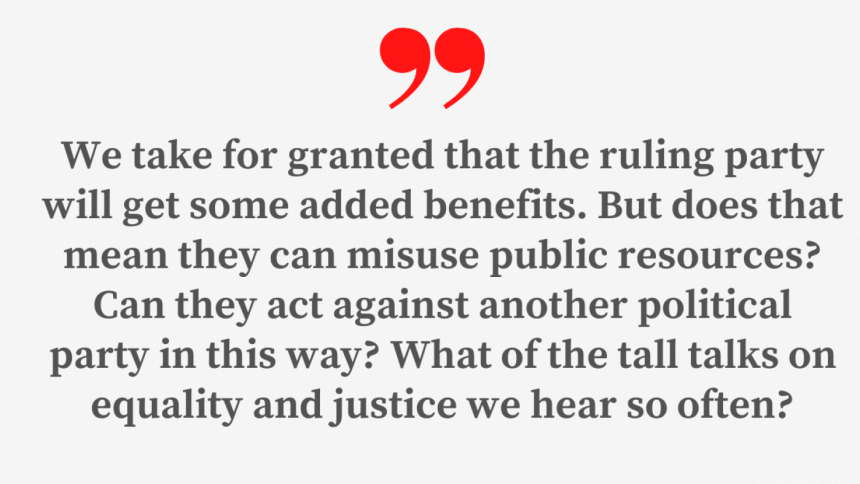
At one end, we see people being actively prevented from attending a BNP rally using transport strikes, police checkposts being put up every couple of kilometres, and BNP leaders'/activists' homes being raided, and them being arrested. On another end, special trains are to be arranged for the AL's rallies. Why should two political parties of the same nation receive polar opposite treatments?
We take for granted that the ruling party will get some added benefits. But does that mean they can misuse public resources? Can they act against another political party in this way? What of the tall talks on equality and justice we hear so often?
When there's a BNP rally, 3G and 4G services for mobile networks are usually halted around the venue. But the government doesn't even bother to explain the reasons behind this. On December 3, 2022, Rajshahi did not have 3G and 4G services. Queries revealed that the BTRC had given a "directive" to carry this out.
Did the BTRC's directive only harm and deprive BNP leaders and activists? Did not the general population also suffer? When the transport strike prevented BNP supporters from travelling between districts, were they the only ones affected? Did the whole region consist of BNP supporters, leaders and activists? Is there any explanation for such government actions, which cause the people to suffer?
It can be uncomfortable to have these pointed out, but even when we do, the government pays no heed. When a political party is elected by the popular vote, but then becomes an authoritarian regime, getting re-elected via night votes and voter-less polls, the general people start feeling bitter towards said party. People start comparing such political governments with military dictatorships, which is by no means a positive sign for our politics, or for politicians in general.
The ruling AL's politicians claim they have no aspirations of holding on to power and that they do not want any personal achievements, either – they simply want to serve the public.
Undoubtedly, serving the public is a good deed. But what kind of "service" do people get when their mobile networks are disrupted? Do transport strikes serve the people? What does "serving the people" actually mean to the ruling party? Does it mean only serving their own leaders, activists and supporters? Aren't opposition party affiliates a part of this country, too? Don't they also deserve to be served by the government?
People are losing voting rights, they cannot cast votes during polls, the prices of essentials are skyrocketing – and the government seems to be taking no notice. Ignoring the public's pleas, it is instead increasing the prices of fuel, gas and electricity. Each development project is seeing a cost increase, which is affecting the economy. We are experiencing an acute US dollar crisis and yet, money laundering persists. The government is not even taking effective steps against people who have been found responsible for causing these issues.
I want to end this piece with an example. Back when the military dictator HM Ershad was in power, the 15-party alliance led by the AL, seven-party alliance led by the BNP, and the five-party leftwing alliance, participated in a unified protest. Then, Ershad, who lost all popular support, stopped production in Adamjee Jute Mill and brought in 15,000 to 20,000 workers to join his rallies. That initiated the eventual doom of Adamjee Jute Mill. Later, the BNP came to power and shut down this mill, which once was bursting with potential.
Bangladesh Railway is already riddled with injustice, anomalies, and corruption. Have we considered what ill fate might befall the BR if such political usage of trains, as mentioned above, becomes a recurring trend?
Golam Mortoza is the editor of The Daily Star Bangla.
In the first parliament 45 years ago, none of the parties was recognised as official opposition due to their poor strength in the House.
The resounding victory of ruling Awami League-led alliance in Sunday's polls has diminished the scope for emergence of an official opposition in the new parliament.
The AL-led alliance together grabbed 288 seats out of 298 with the ruling party alone bagging 259 seats. The BNP-led alliance managed to secure only seven seats. [Election to Gaibandha-3 was rescheduled to January 27 following the death of a candidate and re-polling will take place in three centres in Brahmanbaria-2 on January 9.]
Against this backdrop, Jatiya Party may sit on the opposition bench in the new parliament to be formed with MPs-elect swearing in tomorrow.
The JP, a key component of the AL-led grand electoral alliance, emerged as the second largest party by obtaining 20 seats.
It needs at least five more to get official recognition as the opposition, according to the verbal directive given by Bangabandhu Sheikh Mujibur Rahman during a debate in the first parliament on April 12, 1973.
In the first parliamentary election held in 1973, the AL won 293 seats. The opposition parties -- Jatiya Samajtantrik Dal, Bangladesh Jatiya League, National Awami Party and others obtained only seven seats.
They extended their support to Jatiya League leader Ataur Rahman Khan and demanded that he be recognised as the leader of the opposition.
During the debate over recognition as opposition, Bangabandhu said a party could not be recognised as opposition if it did not have at least 25 MPs.
If any group has less than 25 MPs and at least 10 MPs, it can be termed a parliamentary group, not a parliamentary party, said Bangabandhu.
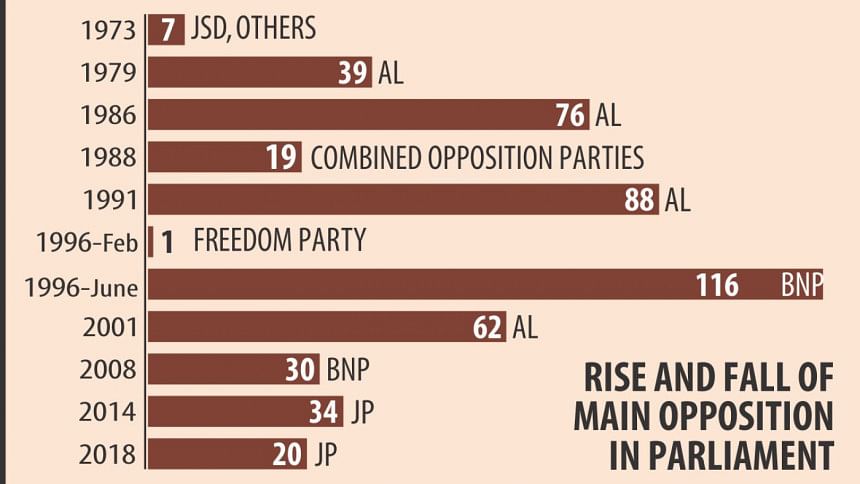
"The speech delivered by Bangabandhu Sheikh Mujibur Rahman is the only directive," wrote Khandaker Abdul Haq in his book "Parliamentary Practice and Procedure" published by the Jatiya Sangsad Secretariat in 2001.
"His directive has been derived from experiences of the Pakistan National Assembly and East Pakistan Provincial Assembly and it is consistent with the parliamentary culture of India and this sub-continent," wrote Haq, who was a senior official at the Parliament Secretariat.
If Bangabandhu's directive is taken into consideration, JP would need five more seats to qualify to become the opposition party in the new parliament. If JP is not the official opposition, none of its MPs could be the leader of the opposition.
The JP became the main opposition in the current parliament formed through the 2014 election, which the BNP-led alliance boycotted. It won 34 seats and its senior leader Raushan Ershad was recognised as the leader of the opposition with a status of a minister. Three JP MPs were also made ministers.
Their dual role has been criticised. The party could not play its due role as the main opposition in parliament in the last five years.
JP Secretary General Mashiur Rahman Ranga yesterday said his party would hold a joint meeting of the party's presidium members and MPs-elect today to decide whether it would join the government or sit on the opposition bench.
"We will also discuss it with the grand alliance," he said at a discussion at the party's Banani office.
The telecom regulatory commission has slowed mobile internet by shutting down 3G and 4G services yesterday night.
As per the Bangladesh Telecommunication Regulatory Commission (BTRC) order issued around 10:00pm yesterday, people using the internet on their phones would not be able to stream or upload pictures or videos.
Use of communication apps would also be nearly impossible with the low-speed mobile internet.
Some users have already started complaining about the internet speed since 10:30pm.
As of November, over 6 crore people are currently using the 3G and 4G mobile internet.
Only 2G internet would be available now, according to an e-mail sent to mobile operators by the BTRC's engineering and operations department.
The decision must be in effecti until further notice, it said.
Contacted, BTRC Chairman Jahurul Haque refused to comment on this.
Requesting anonymity, a commissioner said the order followed a request from the higher authorities.
Officials said the situation may continue until December 31.
The BTRC, however, hasn't said anything about broadband services.
According to BTRC data, there were 57.35 lakh broadband connections in November.
On Wednesday, the BTRC in a meeting with the International Internet Gateway representatives said social media sites, especially Facebook, would be blocked if needed.
EC Secretary Helal Uddin Ahmed Earlier told reporters two weeks ago that they would consider completely blocking mobile internet during the polls.
BTRC engineers also visited the mobile operators' offices and examined how long it would take to block the services.
On Monday, the EC asked the BTRC to prepare to block 3G and 4G services and social media sites for three days, including December 30.
The BTRC had also formed a team to stay at its office round the clock and act if any unlawful online activity is detected, officials said.
During the demonstrations for safe roads in August, the BTRC slowed down internet speed for almost 24 hours.
Mobile phone users in Sylhet have complained that they have been facing difficulties to connect the internet on their devices since 10:00am, ahead of the BNP rally in the district today.
Sources in several telecom operators said the BTRC has directed them to keep the 3G and 4G data services shut in Sylhet from 10:00am to 7:30pm today.
Talking to this newspaper, Abdur Rahman Hira, a BNP activist, said he had troubles connecting to the internet on his mobile phone since 10:00am.
Condemning violence in Bangladesh, the United Nations has urged all sides to show restraint and ensure a peaceful post electoral environment in the country.
The USA and the European Union have also denounced violence over the just concluded parliamentary elections, and called for addressing all electoral complaints in a peaceful manner.
Welcoming the participation of all major political parties in the general election for the first time in 10 years, they said it was a positive development which reflected aspirations of people for democracy.
The spokesperson for UN Secretary-General Antonio Guterres in a statement on Monday said, “The United Nations is aware of violent incidents and reports of irregularities in the Bangladesh general election.”
The UN regretted the loss of life and injuries sustained by candidates and voters during the electoral campaign and on the voting day, it said.
US STATEMENT
The US in a statement yesterday commended the Bangladeshis who voted in the election as well as the decision of all major opposition parties to participate.
“The United States remains deeply invested in the future of Bangladesh and its democratic development. The United States is Bangladesh's largest foreign investor, largest single-country market for Bangladeshi exports, and home to a large community of Americans of Bangladeshi origin,” said Robert Palladino, deputy spokesperson of the US state department.
However, it expressed concern over reports of harassment, intimidation, and violence in the pre-election period saying that those incidents made it difficult for many opposition candidates and their supporters to meet, hold rallies, and campaign freely. “We are also concerned that election-day irregularities prevented some people from voting, which undermined faith in the electoral process.”
He said his country strongly encourages all parties to refrain from violence and request the EC to work constructively with all sides to address claims of irregularities.
“Bangladesh's impressive record of economic development and respect for democracy and human rights are mutually reinforcing, and we look forward to continue working with the ruling government and opposition towards advancing these interrelated goals,” reads the statement.
EU STATEMENT
The EU said the mobilisation of voters and the participation of the opposition in the polls reflected the people's aspirations for democracy.
“However, violence has marred the election day, and significant obstacles to a level playing field remained in place throughout the process and have tainted the electoral campaign and the vote,” an EU spokesperson said in a statement yesterday.
Maja Kocijancic, spokesperson for foreign affairs and security policy of the EU, in his statement said the relevant authorities should now ensure a proper examination of allegations of irregularities and commit to full transparency in their resolution.


 For all latest news, follow The Daily Star's Google News channel.
For all latest news, follow The Daily Star's Google News channel. 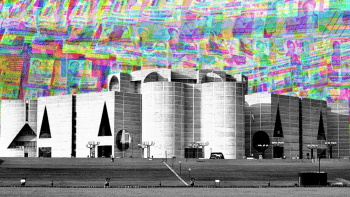
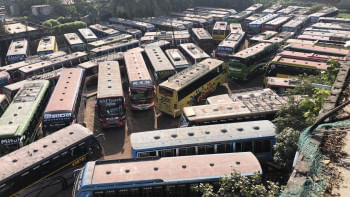

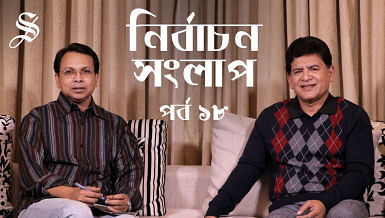
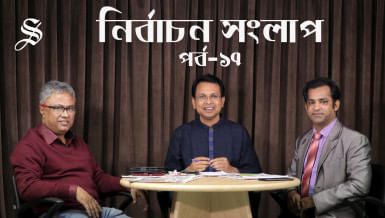
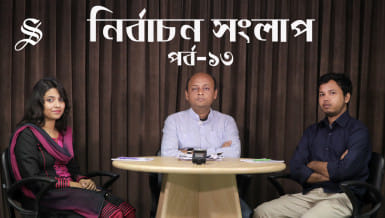
Leave your comments